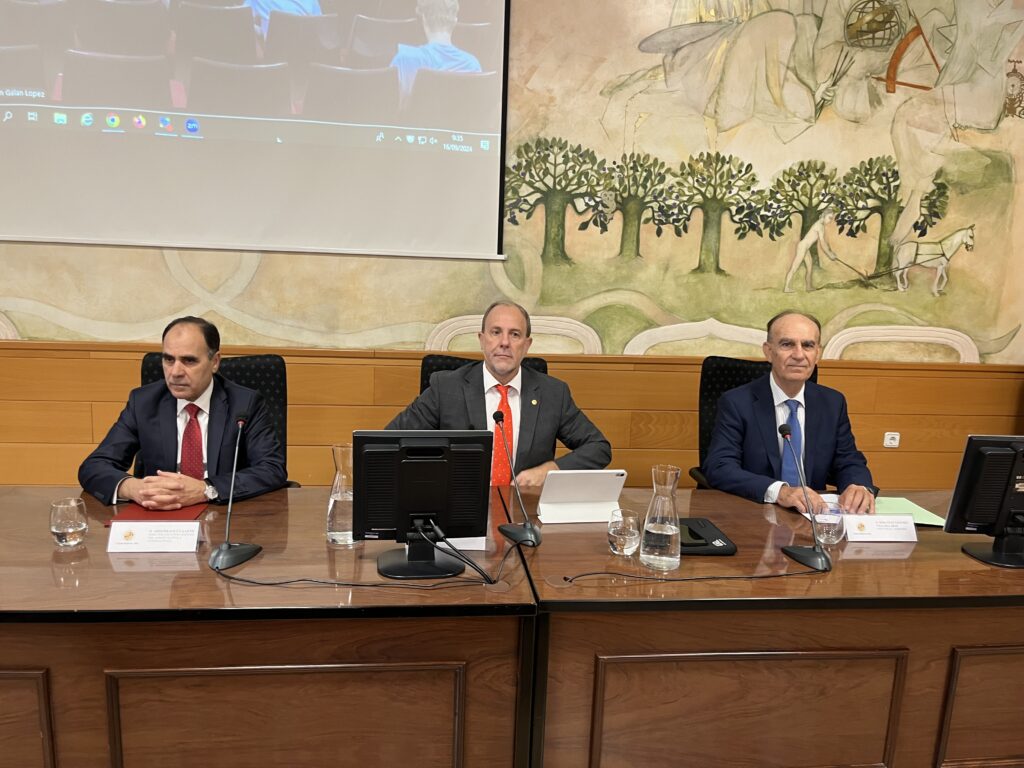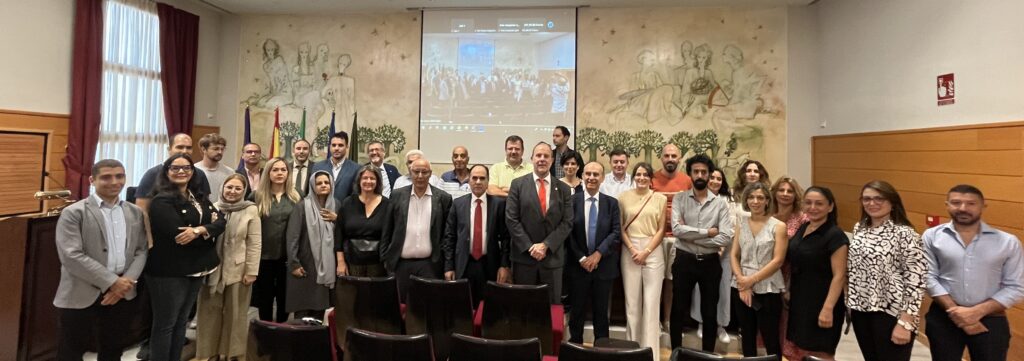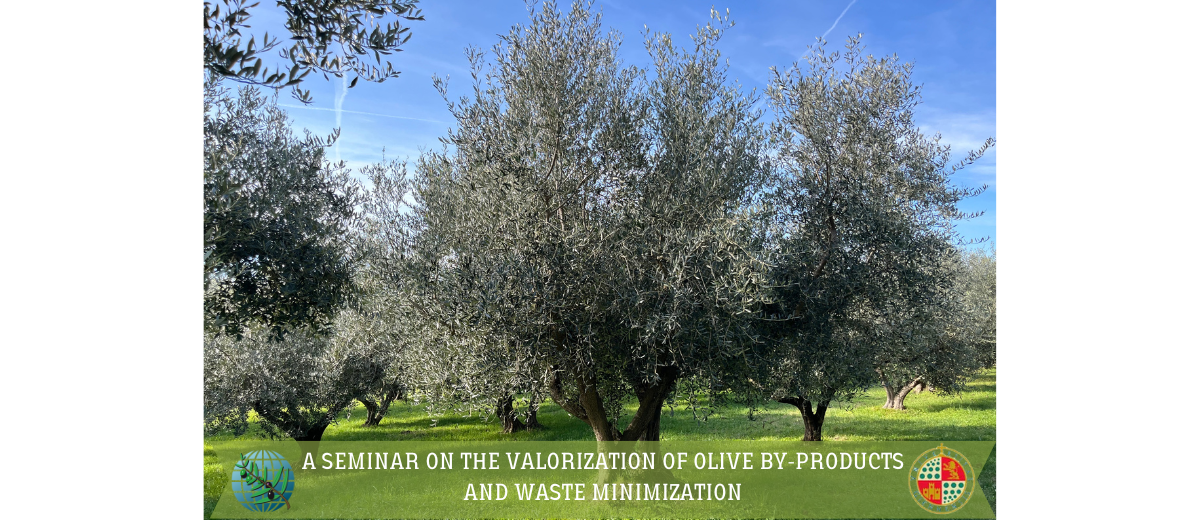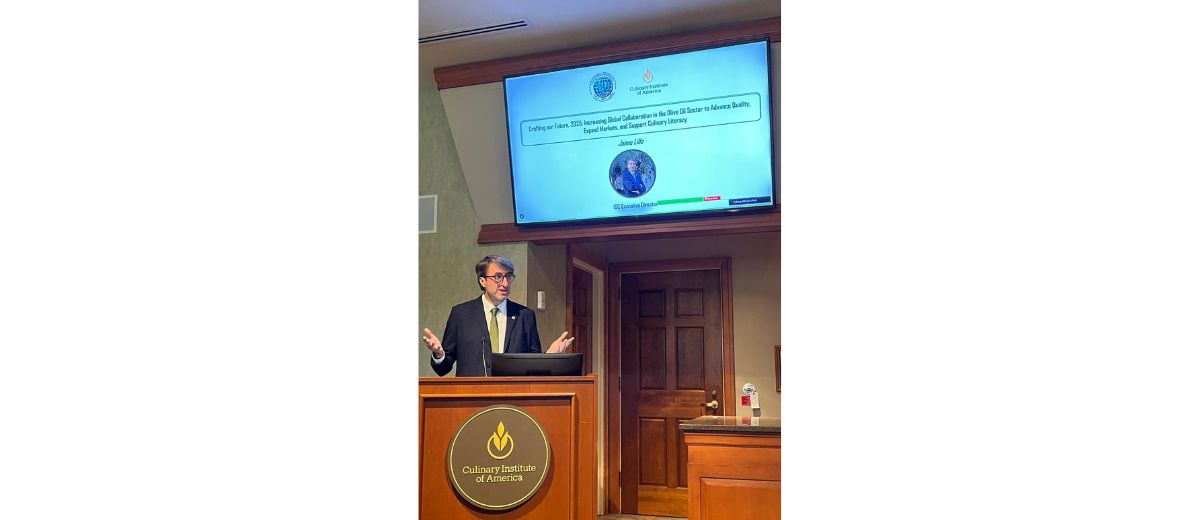The seminar, programmed from 16 to 20 September 2024 at the University of Jaén, will take stock on how to optimise the olive industry’s by-products and minimise the waste generated
The International Olive Council (IOC) and the University of Jaén have jointly organised a seminar on methods of valorising by-products and minimising waste from olive growing and finding alternative uses for them.
The very large number of applications received demonstrates the interest aroused by this issue. A total of 160 candidates from 26 countries, both IOC member and non-member countries, applied to the course. Candidates who applied to take part were from Albania, Algeria, Argentina, Azerbaijan, Cyprus, Egypt, Spain, France, Greece, India, Iran, Israel, Jordan, Lebanon, Libya, Malta, Morocco, Montenegro, Pakistan, Peru, Portugal, Sao Tomé and Principe, Slovenia, Tunisia, Türkiye and Uruguay. The representatives of the two institutions finally selected 65 candidates: 25 in person and 40 online.
 Nicolás Ruiz Reyes, Rector of the University of Jaén; Abderraouf Laajimi, IOC Deputy Executive Director; and Sebastián Sánchez, Course Director, launched the seminar on the occasion of an inauguration ceremony on Monday 16 September. Also representing the IOC at the inauguration ceremony were Lhassane Sikaoui (Head of Olive Growing, Olive Technology, and Environment), Catarina Bairrao (Head of Technical Cooperation and Training), Ayman Lekhbou (IOC Intern), and Akram Charfi (IOC PhD Scholar).
Nicolás Ruiz Reyes, Rector of the University of Jaén; Abderraouf Laajimi, IOC Deputy Executive Director; and Sebastián Sánchez, Course Director, launched the seminar on the occasion of an inauguration ceremony on Monday 16 September. Also representing the IOC at the inauguration ceremony were Lhassane Sikaoui (Head of Olive Growing, Olive Technology, and Environment), Catarina Bairrao (Head of Technical Cooperation and Training), Ayman Lekhbou (IOC Intern), and Akram Charfi (IOC PhD Scholar).
IOC Deputy Executive Director Abderraouf Laajimi praised the University of Jaén for its ongoing support and collaboration, noting the importance of integrating environmental sustainability with the olive sector’s economic and social aspects. He highlighted the sector’s resilience and its role in adapting to climate change while enhancing quality and creating employment opportunities.
Rector Nicolás Ruiz Reyes expressed gratitude to the IOC for their trust and support, highlighting the University’s pride in hosting the seminar with 65 participants from 19 countries. He emphasised the seminar’s key role in promoting more sustainable agricultural practices and reflected on the seminar’s relevance to the region, where extra virgin olive oil is a vital part of local identity. He stressed the need for advanced practices to address environmental risks associated with agriculture and the importance of disseminating innovative technologies.
Course Director Sebastián Sánchez welcomed participants, reflecting on the seminar’s extensive preparation and underscoring the significance of addressing both olive oil production and the potential value of by-products and residues. He emphasised the synergy between agriculture, the environment, and energy, aiming for a balanced approach to sustainability.
The seminar aims to deepen understanding of the challenges and innovations related to by-product management, production chain analysis, applicable legislation, and the profitability of sustainable practices. It aims to be a valuable opportunity for professional and personal growth, fostering advancements in both the economic and environmental aspects of the olive industry.

The University of Jaén, with whom the IOC maintains a longstanding cooperation, remains a leader in olive research and knowledge transfer, with nearly 130 research groups, alongside the work of the International Olive Oil and Olive Oil Research Institute (INUO), a benchmark institute for table olive and olive oil research, development and innovation advancements.










